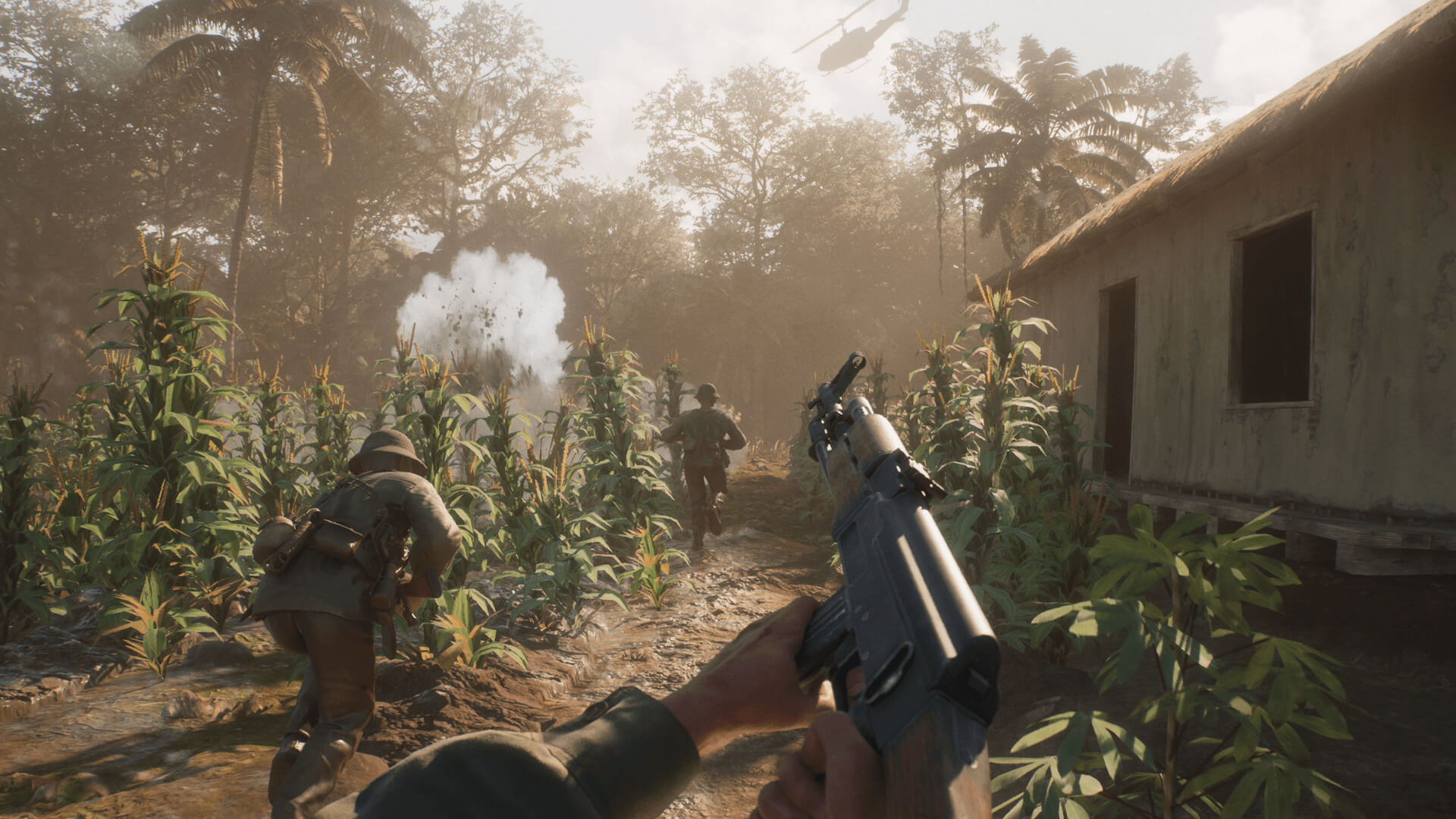Radical Forge: Minecraft Dungeons, Zombie Army 4 and a passion for games and people!
From Holiday Inn Warwick, to Minecraft Dungeons via Gang Beasts


.avif)
If you asked someone to imagine a games development studio, there’s a very high chance that they’d imagine Radical Forge: a creative hive of activity; a hardworking yet playful mentality; an edge that you don’t find in most other industries; and strange things dotted around the office that have even stranger stories to tell if they could.
But there’s one thing that most people won’t imagine, and that’s CEO Bruce Slater, whose vision for what Radical Forge could be (and importantly, should be) has driven the studio from even before it was a reality. He’s passionate about games of course, but he’s also committed to creating a healthy, rewarding, fair and (dare we say it), family-like working environment.
Bruce started Radical Forge in 2017 in Middlesbrough, UK. The studio is now firmly established with over 30 people in the team, it develops its own IP and works as a co-developer studio with others on games across all platforms, providing prototyping, ports, level design, VFX, environmental and technical art, design scripting, shaders, UI implementation and optimisation. To create all of this, the studio uses Autodesk 3ds Max and Maya, amongst other industry products.

Unreal Tournament 3 tutorials to meeting Autodesk 3ds Max 2022
Like many others in the industry, Bruce first began creating his own games and modding in his early teens, testing the waters with things like Unreal Tournament’s UT editor. But it wasn’t until Unreal Tournament 3’s Special Edition that Bruce could finally create the things he saw in his head.
“It launched with a DVD, with tutorials that showed you how to use the game engine properly. And to give you an idea of how old that was, they were all in 4:3! But it meant that you didn’t have to just arbitrarily click the buttons and pray that you knew what they did. There was no more trial and error, I could actually learn how to do it. I think there were eight hours of tutorials and I’ve got them embedded in my brain for eternity.”
For Bruce, this was the watershed moment when he realised that making games was something he could do as a profession, not just in his spare time.
The first step was to organise a month-long internship at Jester Interactive, which is where he first got his hands on Autodesk 3ds Max. At 15 years old, Bruce was taking the basic principles UT3 had shown him, and building them out visually using 3ds Max 7. In his short time at Jester, Bruce worked on TT Superbikes, whilst also teaching himself what Max could do, exploring and experimenting as much as he could.
University passions and decisions
Then surprisingly, Bruce and Max’s relationship went cold as Bruce went back to modding and creating games with the personal tools he had available at home. It wasn’t until he went to study Game Art at Teesside University that the two connected once more, with Max being at the very heart of the course.
“I went to university naively thinking that people who went to university to learn how to make video games actually cared about making video games… but I was mistaken,” Bruce laughs.
Bruce is a passionate and driven individual. His passions run much deeper than just video games too, including kayaking and skateboarding, and as we’ll see later, for sharing experiences, getting people involved and generally doing the right thing by people. All of that combined to create a unique vision of what being a games development studio should be. But not without a few false starts.
The birth of Radical Forge
In between leaving university and starting Radical Forge officially in 2017, Bruce started several companies and released ‘Audital’, a self-created game that was featured by Apple in 2015. He also began work on a little title you may have heard of, Gang Beasts.
However, at this time, the North East of England wasn’t the digital hotspot it is now, and opportunities and any kind of funding was extremely hard to come by. In an attempt to tackle that, Bruce and Olly Bennett set up Game Bridge, a networking event for game developers across the North East. It’s still a going concern today, and was in fact the first place Gang Beasts was seen anywhere outside of Bruce’s bedroom.
Even with Game Bridge helping him forge a network of contacts, Bruce was on the verge of giving up his goal of running a games studio and getting ready to find himself a job. Luckily for the games industry, a crisis meeting with two industry friends changed all that.
“We call it The Warwick Incident because we met up in the Holiday Inn in Warwick. I sat down with them and we spent three hours talking about where I should go, or what I could do. Basically, at the end, they had convinced me to start my own studio and go for it again. And that was the catalyst that started Radical Forge.”
With renewed focus, Bruce took the money left over from Gang Beasts and used it to bootstrap Radical Forge. Bruce and his team have now worked on huge titles like Minecraft Dungeons, Sea of Thieves, Zombie Army 4 and Rust.

A unique ethos
In just four years, Bruce has established a studio that feels as strongly about the way it works as it does the things it works on. Whenever he gives talks to student game developers, Bruce likes to focus on the things he’s learned. It’s telling that these points aren’t focused on tech or processes, but things like ‘Look after people who work for you’, ‘Be a fun person to be around’, ‘Don’t stifle creativity’ and ‘Don’t be afraid to tell people how you feel about anything’.
This final point ensures that Radical Forge is a very transparent studio, for its own staff and for the publishers and other games developers it works with. If Radical Forge sees an issue, it addresses it head on, and immediately rather than let it grow. Internally that means people can be very open with each other, safe in the knowledge that what’s being said is for the project’s sake, not personal. Not every studio could survive this kind of openness, but Radical Forge’s team is more than a group of colleagues. They’re friends who frequently spend time together away from the office – by choice. Skating, visits to the beach, cinema trips and just traveling together are all the norm, not the exceptions.
When it comes to relationships with co-devs, the transparency is the same: if something’s not working how it should, Radical Forge flags it up. “It’s actually all about context and phrasing,” Bruce clarifies. “Realistically, it takes three or four phone calls to work it out and get to the bottom of the issue on both sides, before you can come to a compromise that makes both sides feel like they win, but it’s critical to the health of your team and the team you’re working with.”

.jpg)
We'd love to hear from you, why not speak to us today...
Whether you're a small studio or a global company we can help you.




.png)
.svg)



%20copy.avif)

.avif)